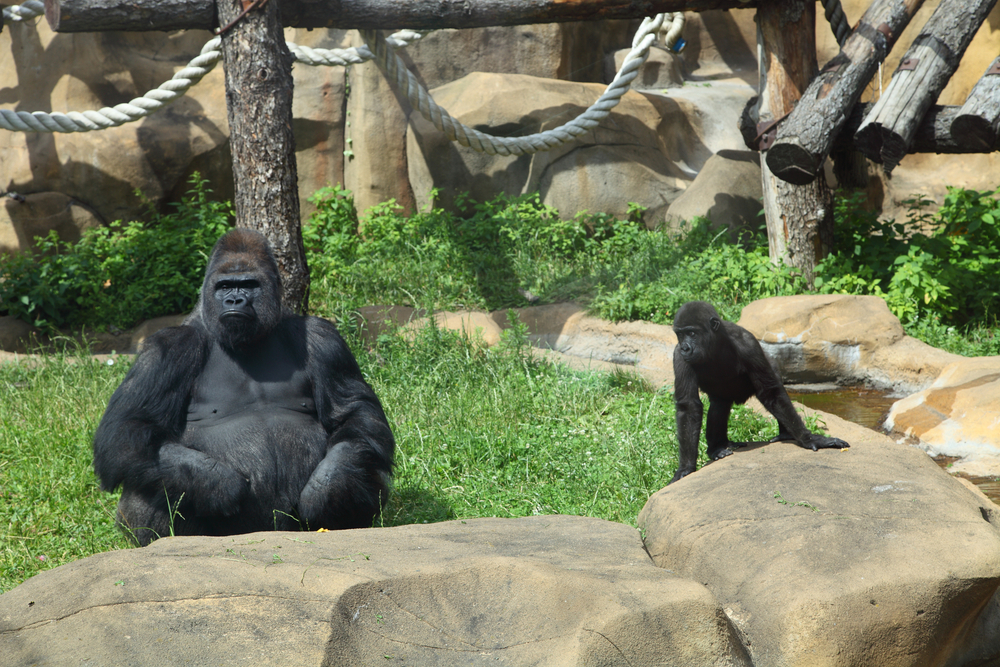Chimps, bonobos, orangutans, and lowland gorillas can all enjoy long lives in captivity, but one great ape you’ll never see in a zoo is a mountain gorilla. Some zoos have tried to capture and contain these wild beasts, but it didn’t end well.
Mountain gorillas are a subspecies of the eastern gorillas, found in high-altitude forests of the Virunga volcanic mountains of Central/East Africa and Uganda’s Bwindi Impenetrable National Park. They are typically smaller than other eastern gorillas but have notably thicker fur, adapted to the chillier mountain weather. Temperatures can occasionally dip below 0°C (32°F) in their natural habitat, so a thick coat is needed.
As per the latest survey, there are just 1,063 individuals left in the wild. They were considered a “critically endangered” species, although their status was changed to just “endangered” in 2018 thanks to conservation efforts that brought them back from the precipice of extinction.
To date, there are no known mountain gorillas in captivity. There were a handful of attempts to keep mountain gorillas in zoos during the 1960s and 70s, but they all ended in tragedy.

Unlike mountain gorillas, lowland gorillas are perfectly happy with the zoo life.
Image credit: Elena Blokhina/Shutterstock.com
One of the more successful attempts was seen at Cologne Zoo in 1969 when two mountain gorillas, called Coco and Pucker, arrived from the Virunga Mountains in Rwanda. Zookeepers were hoping to breed the pair, but it eventually transpired that they were both females.
They managed to live a relatively happy life, surviving on a supplemented diet of spinach, celery, onions, broccoli, other vegetables, bamboo shoots, and wheat sprouts. However, in 1978, Coco and Pucker suddenly fell sick with a bacterial infection and both died within a few months of each other. An autopsy suggested that the pair suffered from congenital immune system defects.
Regardless of the duo’s underlying health conditions, it is evident that mountain gorillas almost always die young when being held in captivity. The reason for this isn’t fully understood, especially since lowland gorillas can be kept successfully and have even bred in captivity, which is a pretty sure sign they are happy.
One theory is that mountain gorillas have a very specific diet made up of 142 different types of fruits, leaves, stems, roots, and shoots. It’s hard to recreate this variety in captivity, miles away from their homeland, so it’s possible that captive mountain gorillas don’t get the nutrition they need to stay healthy. It’s also suggested that mountain gorillas may be more prone to stress, which impacts their immune system and ability to fight off infections.
It is possible, however, to keep mountain gorillas in a sanctuary setting. The Senkwekwe Centre in Virunga National Park is the world’s only facility for orphaned mountain gorillas. Here, expert rangers take care of young mountain gorillas whose families have been killed by poaching or war, providing them with food and playing with them throughout the day.
Mountain gorillas aren’t the only animals that are tough to keep in captivity. Chances are, you’ve never seen a narwhal in an aquarium – and for good reason.
Source Link: It's Impossible To Keep Mountain Gorillas In A Zoo – Here's Why